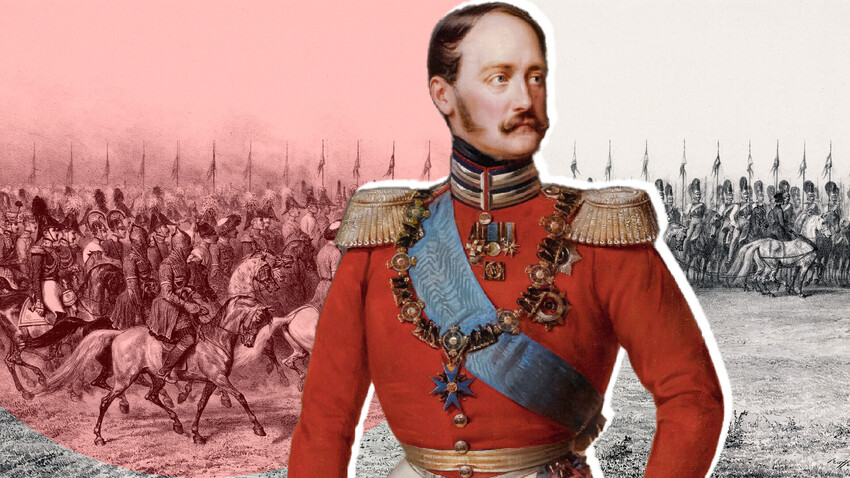
Talking about the period of Nicholas I’s rule, we can describe it as such: complex and contradictory. The tsar himself also possessed these qualities. However, he went down in both Russian and European history mainly with negative connotations.
Nicholas Pavlovich was the third son of Emperor Paul I – and the last in the line of succession. So, he wasn’t prepared for the throne; he was almost never engaged in state matters in the family. As other Grand Princes, he received an outstanding military education and, before ascending to the throne, he headed several guard regiments and was the lead engineer of the Russian army.
However, fate decided otherwise. In 1825, his older brother, Alexander I (the ruling emperor at the time), suddenly passed away. His middle brother, Konstantin, at this time was in Warsaw and flatly refused to occupy the throne or to officially give it up. While Konstantin hesitated, the army in the capital and even Nicholas Pavlovich himself, managed to swear loyalty to him. That also gave some time to the supporters of the two “heirs” to gain strength.
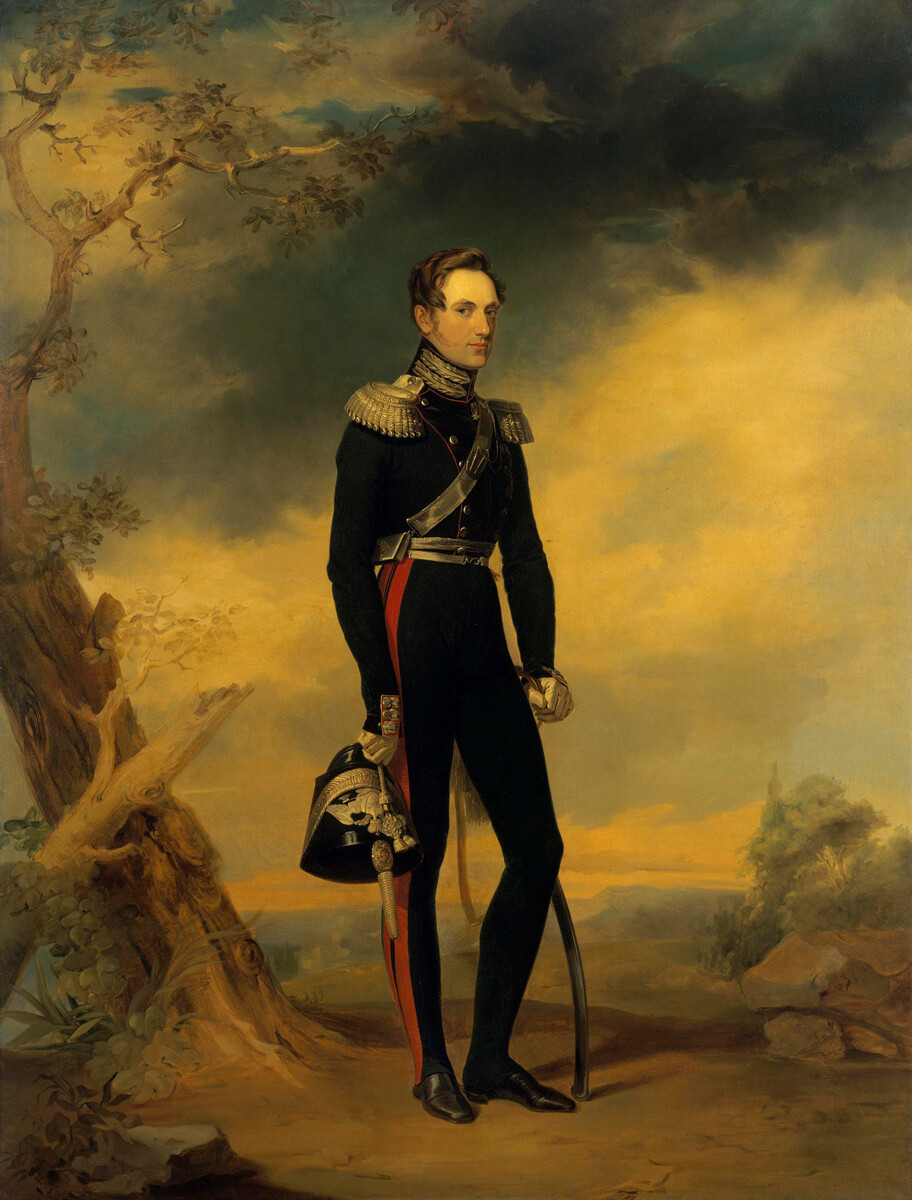
Portrait of Grand Duke Nikolai Pavlovich, 1847, Egor Botman
Public DomainIn the end, under the pressure from his family and from the elites, Nicholas Pavlovich decided to take action: He proclaimed himself Emperor and scheduled the day of re-swearing loyalty for December 14. That day, the revolutionaries brought some of the army men from their barracks to Senate Square in front of the Winter Palace – allegedly to protect the rights of Konstantin, from whom Nicholas was taking the throne. But, the revolutionaries’ plan (who later will be called the ‘Decemberists’) wasn’t successful: the army didn’t support the revolutionaries and the rebellion was crushed. Nicholas ordered five rebellion leaders to be executed by hanging. His rule started with this bloody episode.
Nicholas I was firm in his belief that monarchy was the only form of government suited for Russia. Hence, any changes with liberal undertones he considered fatal. He was a conservative; his state policy was described by three postulates: Autocracy, Orthodoxy and Nationality (a paraphrase of a military slogan formed at the beginning of the 19th century: “For Faith, Tsar and Fatherland”).
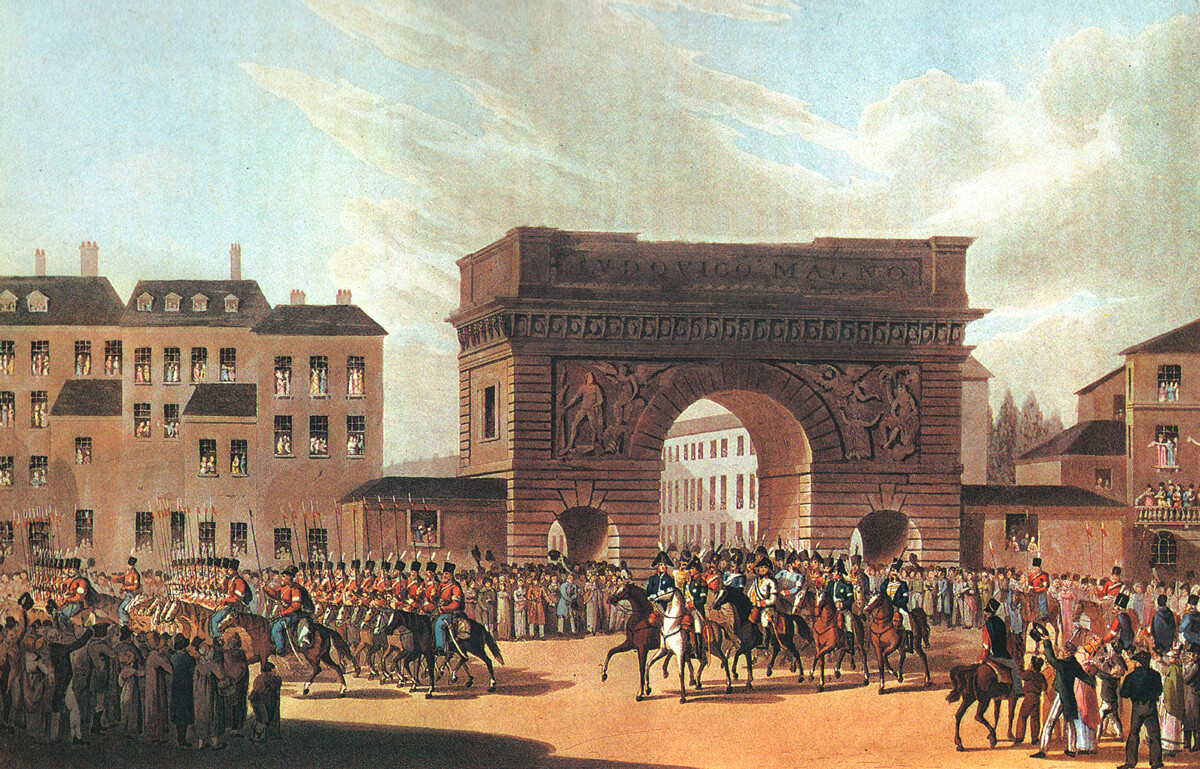
"Entry of Russian troops into Paris. March 31, 1814", unknown artist
The National Pushkin Museum, St. Petersburg/Public Domain“Nicholas set himself the task of not changing anything, not introducing anything new fundamentally, but only maintaining the existing order, filling the gaps in it,” historian Vasily Klyuchevsky described his policy.
He concentrated the governance of the country in his hands, as well as his ministers’, to whom officials impeccably obeyed (their number was increased steeply); the society’s participation in this process was excluded. To know for sure how this society was living and to control it, he founded a new government body – His Imperial Majesty’s Own Chancery. Its Third Section was dubbed the “secret police”; it kept surveillance on “unreliable persons”, exercised censorship over literature, journalists and sent the emperor regular reports.
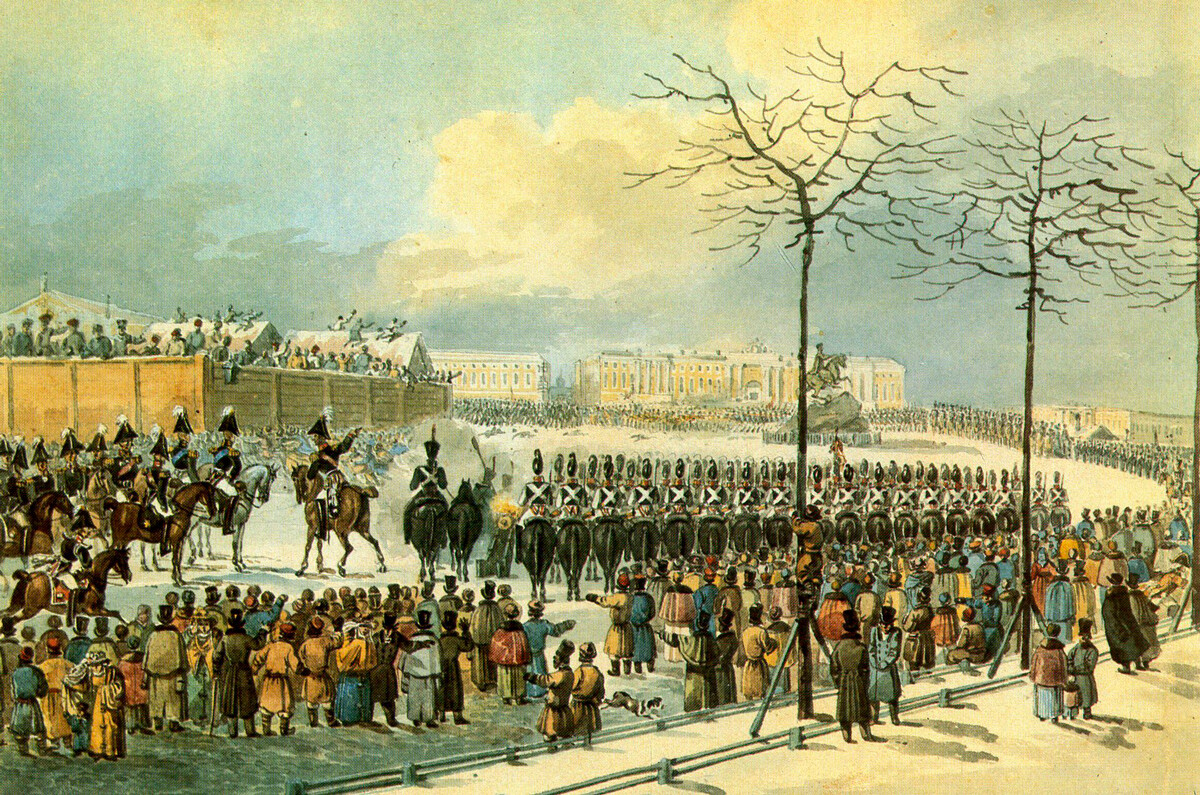
Rebellion in Senate Square on December 14, 1825, Karl Kollmann, 1830s
State Historical Museum/Public DomainThe Decemberists’ revolt left a huge mark on his entire rule. “He believed that what had occurred was Divine Providence – and decided that he was tasked by God to battle the revolutionary disease not only in his own country, but in Europe, in general: he considered the Decemberists’ revolt a part of a whole-European one,” historian Leonid Lyashenko thinks. This belief in the revolutionary threat determined his foreign policy.
So, Nicholas I ended up on the Russian throne, confident that the Russian Empire was threatened by a revolution and that it would come from the West. He believed that peace and firm power in the European states were in Russian interests. Hence, when another revolution was shaking Europe, the Russian tsar thought it was his sacred duty to fight it and react quickly.
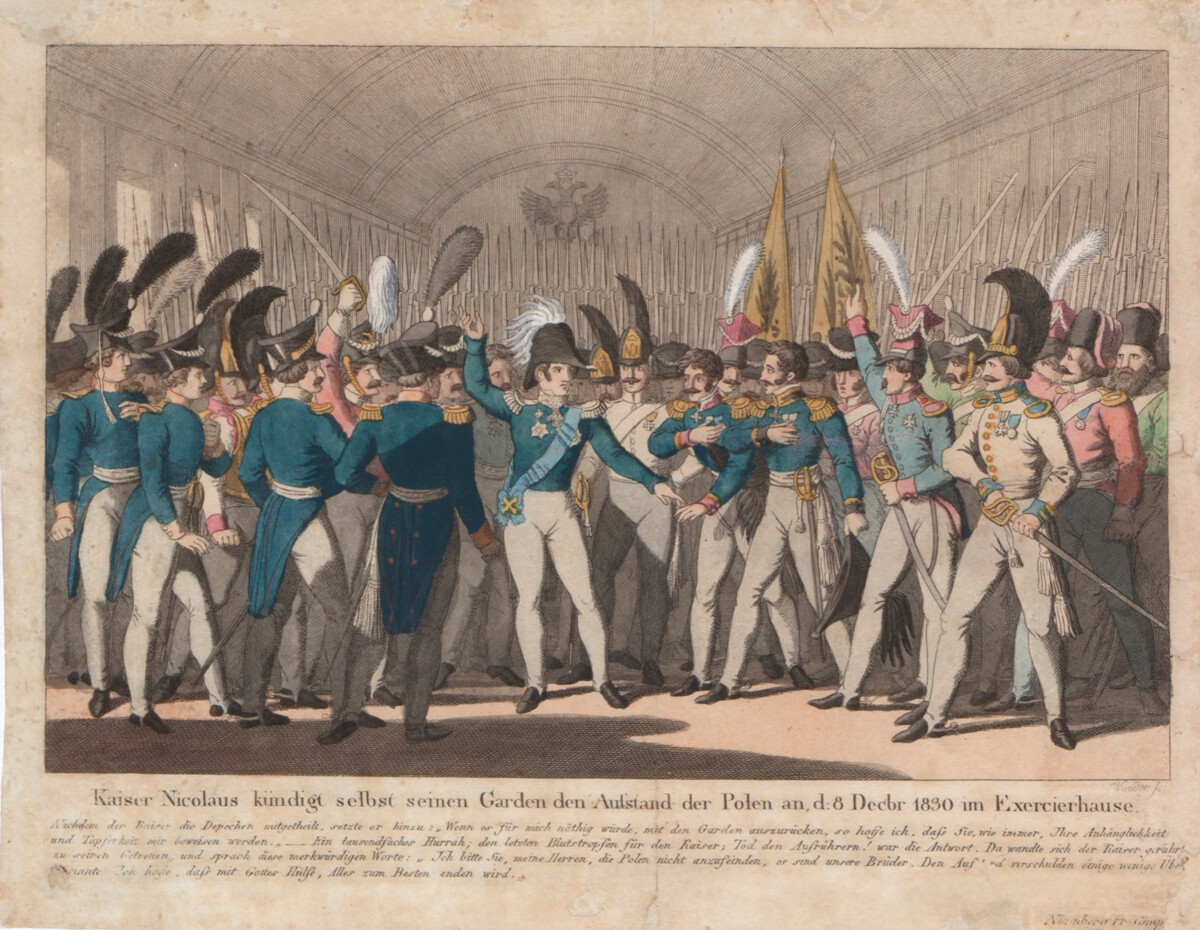
Nicholas I announces to his guard the rebellion in Poland, 1830, Georg Benedikt Wunder
Public DomainFor example, in 1830, the Russian army harshly suppressed a Polish revolt against Russian rule. The next wind of revolution blew from France in 1848, when King Louis Philippe I was overthrown and the Second Republic was proclaimed. Revolutionary sentiments from France spread to other countries – Italy and Austria. A week after the French revolt, Franz Joseph, head of the Austrian imperial house, asked the Russian tsar for help against the revolt in Hungary that could lead to the disintegration of the Austro-Hungarian Empire and the creation of a coalition against Russia. Nicholas I was struck by horror because of this situation, so, in 1849, he sent 170,000 Russian soldiers and officers to Vienna’s aid. This military intervention played the main role in the Hungarians’ defeat in their struggle for independence.
That’s when the European press began using the phrase “gendarme of Europe” in the context of Russia and its tsar. Later, in Soviet historiography, this phrase would be linked to Vladimir Lenin’s quote, who, in a 1908 article titled ‘Events in the Balkans and in Persia’ also noted that, in 1849, Russia had to play the role of a European gendarme against some European countries.
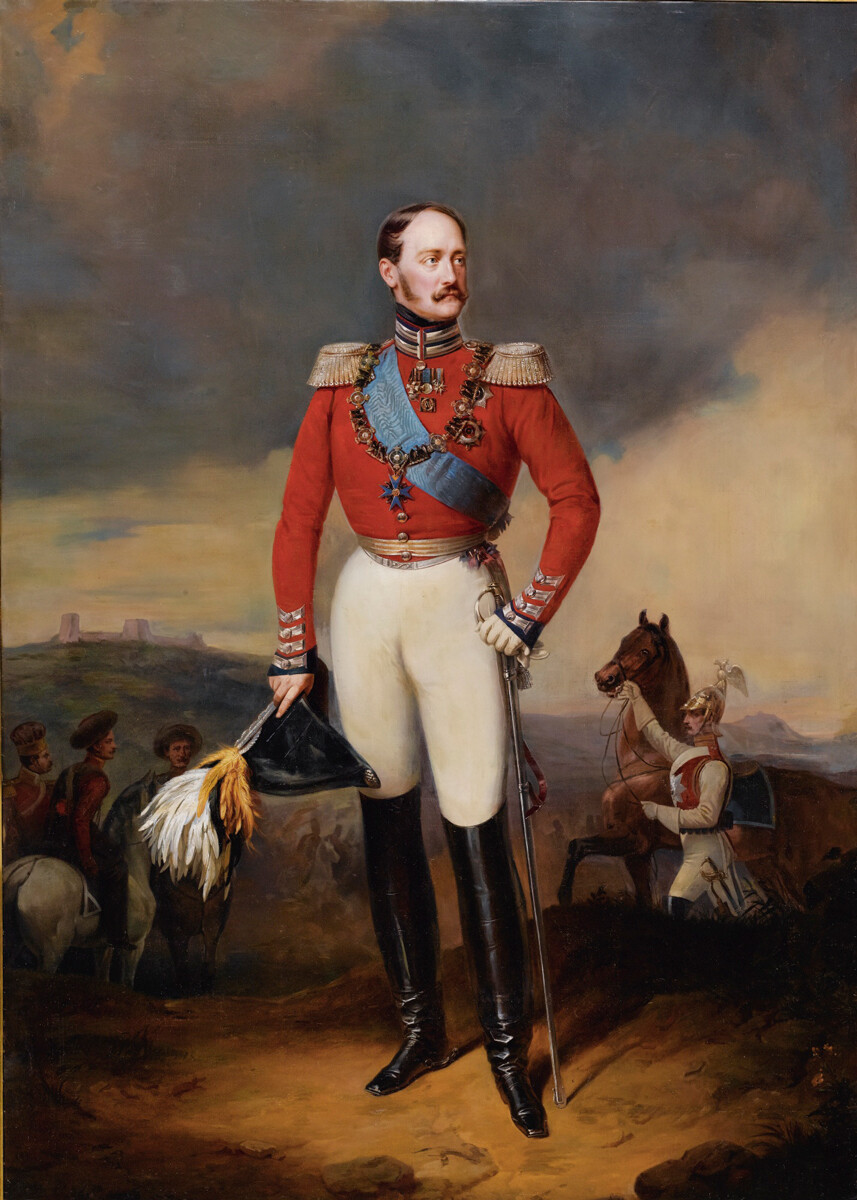
Portrait of Emperor Nicholas I, 1835, Franz Krüger
Sotheby's, London/Public DomainOne way or another, revolution back then couldn’t pass the border of the Russian Empire. Nicholas I’s regime was shaken by severely overestimating its own strength in another war – with the Ottoman Empire in 1853-1856. There, Nicholas made several catastrophic miscalculations and, as a result, suffered a defeat, undermining faith in his regime even among conservative loyal people in Russia.
If using any of Russia Beyond's content, partly or in full, always provide an active hyperlink to the original material.
Subscribe
to our newsletter!
Get the week's best stories straight to your inbox